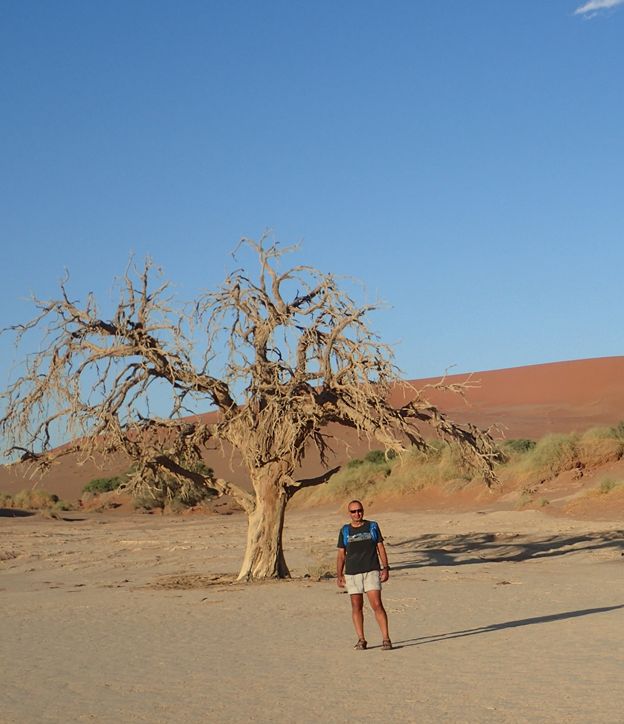Ecohydrology seeks to integrate biological agents into the study of the water cycle. For some time I viewed ecohydrology as extension of agronomic concepts to natural vegetated systems, but it is now abundantly clear that natural systems are far more complex than most monocultural agroecosystems with biologically diverse agents (fauna and flora) inhabiting heterogeneous landscapes and responding to random and episodic inputs. These aspects and the wide range of biomes distinguish ecohydrology making it an exciting new scientific discipline (where agronomic resource management principles become a model system, a special case).
What are your undergraduate and graduate degrees in?
BS and MSc in Soil and Water Sciences of the Hebrew University in Israel ; PhD in Soil, Plants and Biometeorology at Utah State University, Postdocs at UC Davis (LAWR) and UC Berkeley (CEE).
How did you arrive at working in/thinking about ecohydrology?
I have always been interested in plant water relations through my “agronomic” upbringing in a farming community in Northern Israel with keen interest in irrigation management. In Utah I became fascinated with the study of water-limited natural systems. In the past decade, we have been studying surface evaporation (focusing on the roles of soil properties) and evapotranspiration partitioning which naturally require better understanding of plants (from root water uptake to leaf and canopy gas exchange).
What do you see as an important emerging area of ecohydrology?
From my perspective, a key challenge is how to describe large ecosystems (catchments and continents) without losing sight of fundamental physical and physiological processes. Doing ecohydrology across scales with systematic integration of physically-sound processes informed by spatially and temporally extensive data – the future is already here…
Do you have a favorite ecohydrology paper? Describe/explain.
The paper by Schlesinger and Jasechko (2014) on global transpiration was very influential for several reasons: (1) it illustrated the limitations of T estimates by LSM and the need to resolve this aspect; (2) it prompted my ongoing interest in the reasons behind the remarkably constant ratio of T/ET=0.7 (why is that?) and (3) the paper also aimed to tone down inflated claims made in an earlier paper about high ratio of T/ET in natural systems (I thought this was a cool way to achieve this while expanding knowledge).
What do you do for fun (apart from ecohydrology)?
I try to regularly run and work in my yard, and generally enjoy traveling to warm places…

 RSS Feed
RSS Feed